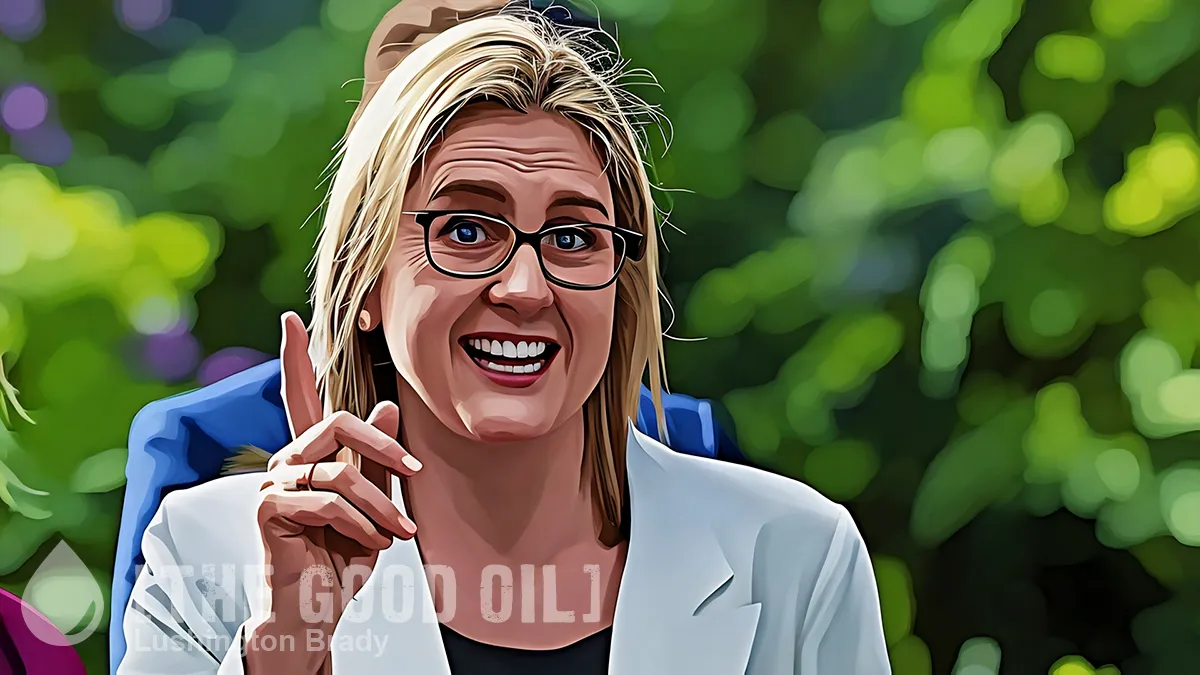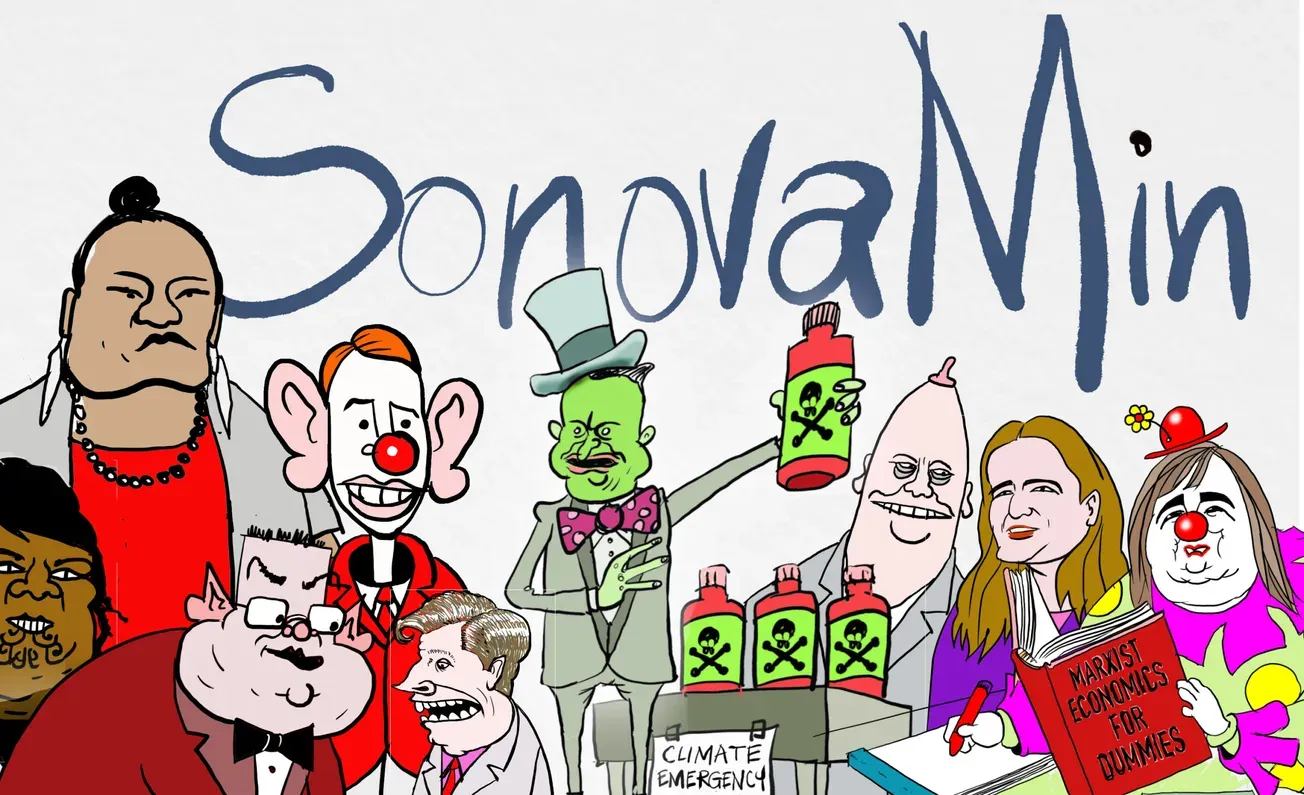Table of Contents
Katrina Gulliver, Daphne Posadas
This year had its share of upsets and outrages, and the editorial team have picked the key events we see as turning points over the past 12 months.
January: Javier Milei at Davos
Amid the snow in Davos, Argentine President Javier Milei unleashed a fiery speech, denouncing the illiberality of governments across the West.
“The main leaders of the Western world have abandoned the model of freedom for different versions of what we call collectivism,” Milei told the audience. “We’re here to tell you that collectivist experiments are never the solution to the problems that afflict the citizens of the world; rather they are the root cause.”
February: The Death of Aleksey Navalny
Russian dissident and democracy activist Aleksey Navalny died in prison on February 16. One of Russia’s most prominent political prisoners, Navalny survived being poisoned with Novichok in 2020, only to be sent to a prison in the Arctic Circle on trumped-up charges. His tenacity in the face of overwhelming odds was an inspiration to followers across the world, and his widow continues his campaign while in exile.
June: Sheinbaum’s Victory in Mexico
This year was particularly turbulent for Mexico, with significant events shaking the nation during an election year. Claudia Sheinbaum was elected Mexico’s first-ever female president in June, succeeding Andrés Manuel López Obrador (AMLO).
Sheinbaum’s presidency signals the continuation of Morena’s populist agenda, which has shown indifference toward the rule of law in favor of popular demands. AMLO’s term was marked by a populist approach and a weakening peso, and in September, he pushed through a Constitutional Reform to the judiciary, approved by a Morena-dominated Congress, shielding executive actions from judicial checks.
During AMLO’s term, the judiciary had blocked several reforms proposed by the president. Against this backdrop, the Mexican peso has slipped from 16.96 in January 2024 per USD to 20.17 in December 2024. This economic instability has worsened as a result of trade tensions with the United States following Trump’s election.
July: Starmer Elected as Prime Minister in Britain
Sir Keir Starmer led Britain’s Labour Party to a landslide victory in July. Winning an unassailable majority in parliament (despite a low number of votes overall), it seemed for a moment that the coast would be clear for them to implement their electoral mandates.
But the ‘honeymoon,’ such as it was, didn’t last long. Tax and Spend Labour instead came out of the gate as Grinches stealing Christmas, cutting the winter fuel allowance (a financial grant given to those over 65 to offset heating costs). Things didn’t get better from there.
Riots in early August following the stabbing murder of three children resulted in uneven police crackdowns. The sobriquet of “Two-Tier Keir” was attached to Starmer, referring to a “two-tier” justice system, which included releasing violent criminals from prisons due to overcrowding, while also arresting people for social media posts.
Meanwhile, Starmer himself was found to have accepted more than £100,000 in cash and hospitality from a major party donor.
July: Venezuela’s Rigged Elections and Protests
In July, Venezuelans caught a glimmer of hope for ending the Chavista dictatorship through elections. Opposition figure Edmundo González Urrutia was seen as a promising candidate. But after a controversial electoral process, the Venezuelan Electoral Council declared Nicolás Maduro as “president” once again, spiraling the country into a political drama as intense as the telenovelas Venezuela no longer produces.
Vente Venezuela, led by María Corina Machado, the opposition leader, conducted a parallel vote count showing that González Urrutia had won the majority of votes. Yet, the regime responded with repression and violence. Activist María Oropeza, a member of the Ladies of Liberty Alliance, was abducted and detained.
As protests demanding Maduro’s resignation and electoral transparency erupted across Venezuela and in cities worldwide, Machado and her team went into hiding. By September, González Urrutia had gone into exile in Spain. Uncertainty looms over January 10, the date when the president-elect is supposed to take office. Despite evidence of the opposition’s victory, Maduro seems likely to be sworn in.
July: Biden Stepping Aside
This turning point changed the course of the US election – not only did Biden remove himself from the ballot, but he installed Kamala Harris as the candidate, a choice which in retrospect seems to have been a disastrous one for the Democratic Party. By announcing his successor, he foreclosed any ambitions party leaders might have had to hold a primary to select a replacement presidential nominee.
Harris did receive an immediate boost in support (and a massive wave of donations), but it wasn’t enough to carry her to a win in November. Her incoherent economic policies probably didn’t help.
Post-election, there have been plenty of recriminations to go around.
September: Brazil’s Ban on X
In September, freedom of expression suffered a severe blow in Brazil, where X was suspended following a decision by five justices of the Supreme Federal Court. The judges imposed daily fines of 50,000 reais (around $9,000) on users attempting to access the platform via VPNs.
Under Elon Musk’s ownership, X had refused to comply with government demands to ban accounts and remove content. In retaliation, the platform faced legal threats, culminating in Justice Alexandre de Moraes freezing the assets of X’s former legal representative and ordering a nationwide ban on the platform.
The ban disconnected over 20 million Brazilians from the platform and was justified under the pretext of combating “disinformation” – a term used broadly in Brazil to censor divergent opinions.
December: Bitcoin Hits $100,000
Bitcoin, the big daddy of crypto currencies, just hit $100k. From a digital coin that was worth less than a penny in 2010, it has become the crypto investment of choice for traders around the world. Its history of volatility made some onlookers wary, but its sticking power has proved them wrong (for now).
Our selection of these events shows just how much one incident – a speech, a death, a political crackdown –can have massive repercussions, and how, in an increasingly globalized world, we are all affected by decisions made by leaders thousands of miles away.
Freedom is always under threat. But there is courage to be found across the globe.
Thank you for joining us in our coverage throughout 2024!
This article was originally published by the Foundation for Economic Education.








